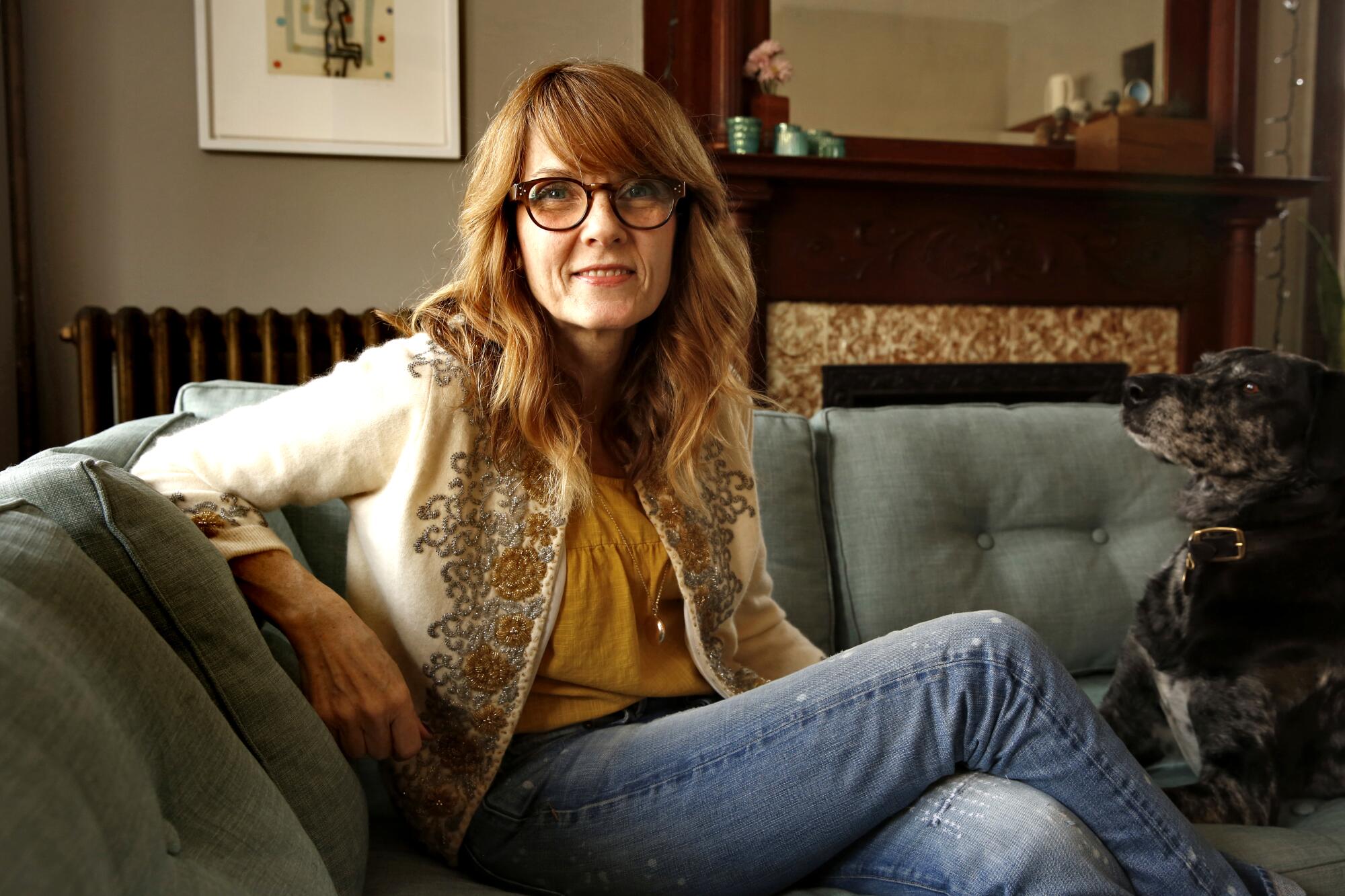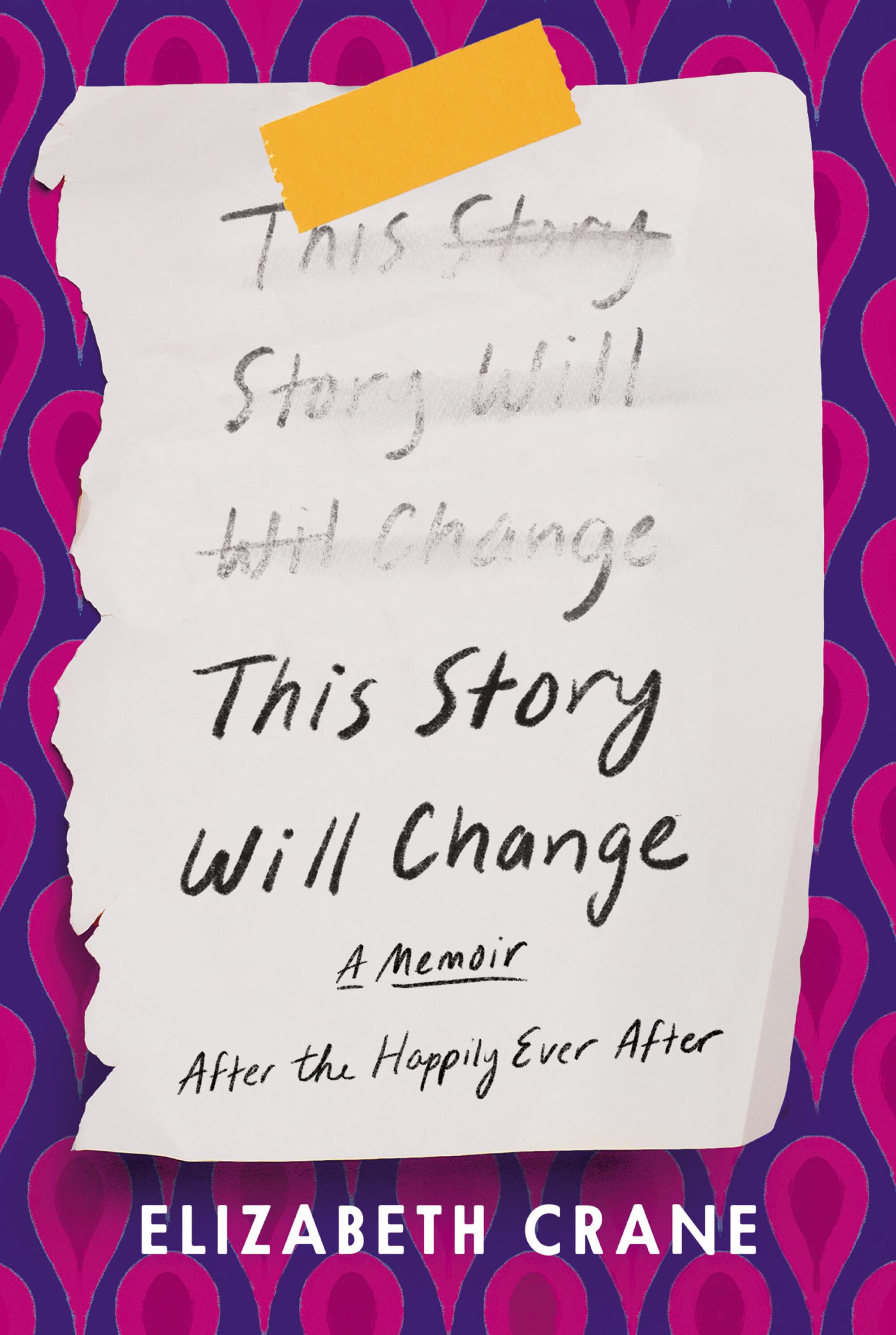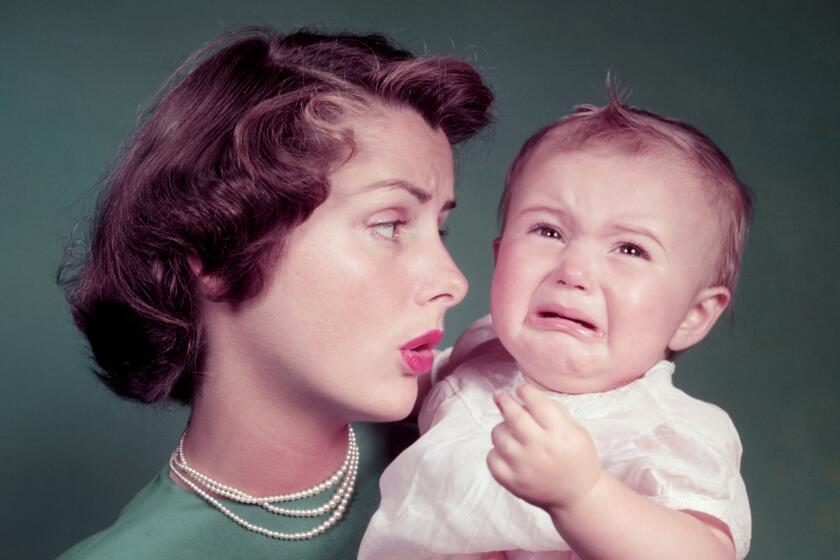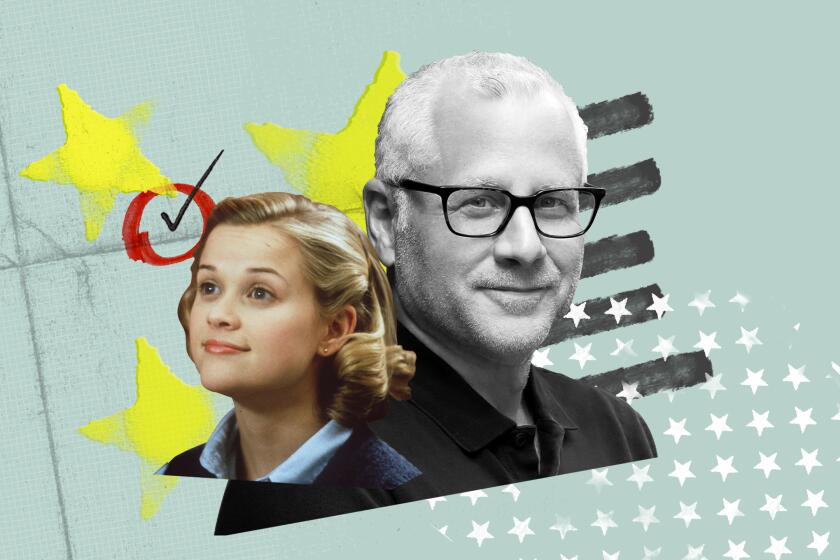
- Share via
On the Shelf
This Story Will Change: After the Happily Ever After
By Elizabeth Crane
Counterpoint: 272 pages, $26
If you buy books linked on our site, The Times may earn a commission from Bookshop.org, whose fees support independent bookstores.
I’ve been thinking about marriage a lot lately. My 25th wedding anniversary is coming up and I keep waiting to get some sort of a performance-review notice in my email. Not that I know what I’d say for either the self- or the spouse evaluation part — maybe I’d just upload Elaine Stritch singing “I’m Still Here.” (It’s dated, but it covers a lot of bases.)
As with many marriages, the pandemic has been a test. My husband and I have spent more contiguous workday hours together in the last two years than we did in the previous 23, and you know what they say about familiarity (spoiler: it’s not good).
But then there have been so many tests: age and children, time and life, not to mention the fact that the man cannot learn how to mute and unmute his cellphone or remember that I hate olives. Some of these tests we have passed easily, others only on a generous curve. Many required us to review the chapter again and retake. Multiple times.
We still love each other, for pretty much the same reasons we loved each other enough to get married in the first place. But if I’m honest, I don’t know exactly why our marriage has lasted this long while so many others haven’t; it cannot be because I am easy to live with.
So I came to Elizabeth Crane’s new book hoping, fairly or not, to find some answers.
I knew going in that Crane’s own marriage ended after 15 years. I also knew that despite the best (and worst) efforts of all the self-help columns, books, call-in shows and podcasts in the “can this marriage be saved” industry, the most revealing accounts often come in the form of an autopsy.
The reality of 2021 was both gentler and messier than the apocalypse fiction we consumed. But those stories taught us we can survive anything
And that, Crane’s book, “This Story Will Change: After the Happily Ever After,” most definitely is. Categorized as a memoir, it deals almost exclusively with the author’s marriage to artist and woodworker Ben Brandt, which ended in a way that seemed, to her, sudden and baffling. He left her for another woman, a client for whom he had been installing windows. (To be fair, they appear to have been very fancy windows that required a lot of design and, well, collaboration.)
He behaved, according to Crane, as openly as a person can behave after he has decided to pursue a workplace attraction to deeper realms while married. He announced he was unhappy, that he had a crush. He subsequently participated in marital counseling and seemed, at some level, to want to stay in the marriage. In the end, however, he left and Crane was devastated.

As with the death of a loved one, advance warning does not ease the pain of a divorce one does not want.
And so Crane, a novelist and short story writer, attempted to write her way out of grief, examining her marriage in granular detail. So granular that it is difficult at times not to scream while reading it, sometimes in frustration (she openly participates in her own denial) and sometimes in exquisite recognition.
In that way it reflects both marriage itself and the experience of listening to anyone talk about their own, past or present.
All those self-help books to the contrary, we don’t like to talk about marriage, not really, not in real-time gory/glorious/boring/honest detail because it is frustrating, exhausting and impossible, like trying to describe being alive. There are flowers and there is flatulence.
We may talk about the low and high points with our friends or our therapists, but in the larger cultural narrative, we’d rather focus on the children, on the jobs, on the events leading up to or away from the married state.
There’s a good reason the birthrate is declining in California and the U.S.. We’ve made parenthood way harder than it should be.
There are exceptions of course — we love a good therapist drama and certain reality shows attempt whatever version of honesty you get when a camera crew and producer are involved — but consistently, only the situation comedy has the guts to truly embrace the messy, inexplicable nature of long-term marriage. And even then, only in half-hour doses, and for laughs. In drama, most established marriages exist solely to be threatened or sacrificed. If a long-term marriage seems happy, it is usually because at least one partner is lying or about to die.
Crane goes to great lengths to discover if she had been lying to herself all those years she believed she had a happy marriage, if she had missed some tear in the curtain that would have revealed it was all an illusion. Instead she discovers two things can be true: They were legitimately happy and there was a tear in the curtain, though she didn’t miss it so much as she believed they could work around it.
Her ex-husband did not.
It takes courage to discuss your marriage, dead or alive, not just because of what you might find but because you will so often be judged. Any honest description of marriage is bound to be at odds with what someone’s idea of marriage should be. Crane begins the book by asking if anyone at their wedding knew somehow that their marriage would not last forever; even she assumes there is some recognizable template for a union based on love, the most irrational of emotions.
It’s odd how we bask in the mysterious nature of love, take heart in its baffling diversity — “there’s a lid for every pot” etc. But when confronted with the difficulties of said lid staying on that pot our reactions often come down to extremes — “not that big a deal” or “I wouldn’t put up with that.” Either of which is (at least within non-abusive relationships) completely subjective and almost never what any married person wants to hear.
Just look at what happened last year when an essay adapted by Heather Havrilesky from her book “Foreverland: On the Divine Tedium of Marriage” appeared in the New York Times. Havrilesky, attempting to narrate her living marriage, declared she often hated her husband, Bill, to whom she referred at one point as a hill of dirty laundry. That portion of the audience not laughing in relieved recognition exploded in swift — and very personal — condemnation; various writers fell all over themselves to declare, on Twitter and Substack, their devotion to their own spouses and their pity for poor old Bill, who they assumed would be filing for divorce any minute.
The doorway to Heather Havrilesky’s living room is festooned with silver streamers, like the beaded curtain at a fortune teller’s.
The excerpted chapter was, as excerpts so often are, among the book’s most provocative. Like Crane, Havrilesky set out to chronicle marriage from the only honest viewpoint she had — her own. But the negative reaction proved that some of us don’t want to think too hard about what a marriage is or isn’t until it’s dead or dying.
To the point of assuming that if a woman is attempting to describe her perfectly fine marriage as she is actually experiencing it, it must be, unbeknownst to her, dead or dying.
“This Story Will Change” emerges from a crisis foretold in a way “Foreverland” does not. But they each attempt to look at a single marriage stripped to its underwear. Crane wants to know why her marriage broke when she believed it would last forever; Havrilesky is trying to discover why hers has held even though marriage itself so often seems ridiculous.
Neither marriage appears to be abusive or toxic, and each woman attempts to be as clear-eyed and fair as one can be. Crane spends enough time on her husband’s stated desire that she make him dinner, and her deep-seated hatred of cooking, that you want to yell, “Just admit this argument isn’t about food.” Except sometimes it is. Sometimes, and I know this from living with a man who does not cook, you want to walk into a house and smell dinner. Just as sometimes you really want the person who claims to love you to stop asking you to do something you hate.
And sometimes your spouse is asking you to do something you really don’t want to do because he actually wants to leave the marriage.
Likewise, Havrilesky devotes so many paragraphs to her husband’s sniffs, snorts and throat-clearings that you want to say, “Dude, get over it,” except sometimes you can’t. At least not in the moment. If there were an Olympic category for sighing, my husband would take home the gold. “Courage, Camille,” I yell, when I’m not yelling, “What the hell do you have to sigh about? I’m the one making dinner. Again.” But then I’m also the one who leaves her shoes all over the damn place and never puts the car keys in the car-key bowl.
So sometimes you object to your spouse’s irritating habits because you really want to leave the marriage and sometimes it’s just because on any given day they can drive you absolutely nuts.
Seen through the prism of #MeToo, ‘Election’ has some explaining to do. In a new sequel, novelist Tom Perrotta gives Tracy Flick another chance to win.
There are no universal answers in “This Story Will Change” and no a-ha moments in “Foreverland” — nor would there be any in my 25-year anniversary self-evaluation. Marriage is not exactly a crapshoot — it takes work and sacrifice — but it does come down to both partners actively and continually choosing to stay married. If, like Ben, your spouse decides they would rather pursue life with another person, there is very little you can do about it. Except cry. And maybe write a memoir.
The value of talking about marriage the way Crane and Havrilesky have done is not derived from revelation but recognition. Description is not prescription; excavation is not the same thing as discovery. Sometimes the act of digging is its own discovery, an activation of muscles we did not know we had.
There are days when 25 years seems like an insane amount of time to be married to anyone and days when those years, and my husband, feel like the only solid footing I have in this world. He will probably never learn how to cook; I will probably never learn to put my shoes away. Love may not conquer all, but it has conquered that much. And for reasons that defy description, we’re still here.
More to Read
Sign up for our Book Club newsletter
Get the latest news, events and more from the Los Angeles Times Book Club, and help us get L.A. reading and talking.
You may occasionally receive promotional content from the Los Angeles Times.













